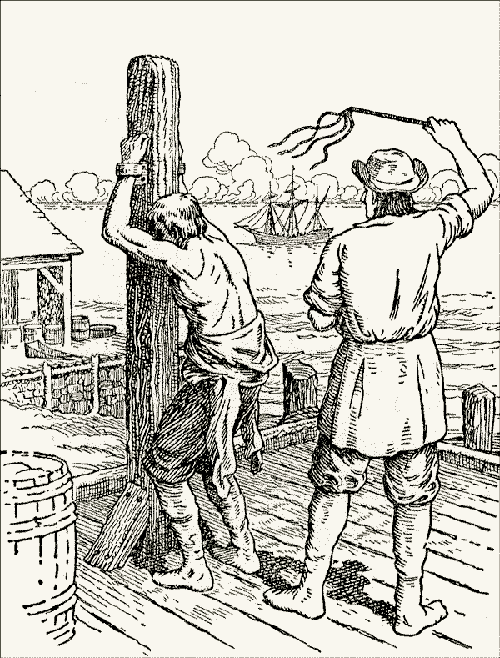Government before 1730
Newfoundland's legal and political evolution differed considerably from other British possessions and colonies in North America. Although explored in the 16th century and settled partially in the 17th, the island did not acquire the trappings of colonial government - essentially a governor and civil magistrates - until 1729. The absence of an appointed governor made early Newfoundland distinct but did not necessarily mean that the island existed in a state of anarchy or as a fiefdom of despotic fishing admirals applying harsh quarter-deck justice. Newfoundland had a decentralized legal system which developed to meet the basic needs of the administration of justice. Composed of both legal and popular institutions and practices, government in pre-1730 Newfoundland expressly served the interests of the fishery.

British Policy
The relatively slow development of government institutions was in large part a natural product of Britain's policy toward Newfoundland and the structure of the fishery. Generally speaking, the island was not a colony in the traditional sense but, rather, a seasonal fishing station. On the one hand, because of the absence of a substantial settled population, there were not sufficient pressures for local government until the first quarter of the 18th century. On the other hand, the British government supported mercantile interests and worked to ensure that the Newfoundland fishery remained an essentially English venture. While some year-round settlement was inevitable and indeed necessary for the operation of the migratory fishery, local government was not: British officials remained skeptical about granting Newfoundland its own legislature right up to the eve of representative government in 1832.
Landmarks
Landmarks of 1634 and 1699 defined the pre-1730 era. The first Western Charter in 1634 formalized the system of customary laws which had long governed the West Country fishery. The Charter codified a series of regulations concerning various offences, such as theft and drunkenness, that interfered with fishing operations. It formally established the system of fishing admirals and gave them the power to judge all local disputes and crimes except felonies, which had to be heard in England after the ships had returned in the fall.
The 1699 act, known as King William's Act, formed the basis of the island's constitution for the next century, confirming by parliamentary statute the authority of the fishing admirals over the administration of justice. It also authorized the commanders of naval warships stationed at Newfoundland to act as appeal judges to decisions of fishing admirals. By establishing in law the role of naval officers, the act set the stage for the entrenchment of naval government in 18th century Newfoundland.
Dual Authority
In a broader sense, two processes marked this period. First, beginning in the 17th century there existed in Newfoundland parallel systems of governance. The island effectively had dual authority: the laws and regulations of the colonists, and the Western Charter of the fishery. This dual authority continued into the 18th century with the cleavage between naval commanders and fishing admirals. Naval officers, in particular, were invariably critical of the fishing admirals' conduct. Second, prior to 1730 there were several significant ad hoc measures taken to fill a perceived judicial vacuum. While most of these went unrecorded, the St. John's court established by merchants in 1723 left a fascinating document for historians. Law and government before 1730 can only be understood in the context of how both formal and informal institutions evolved to suit the interests of the West Country fishery and the needs of those who settled in Newfoundland.




